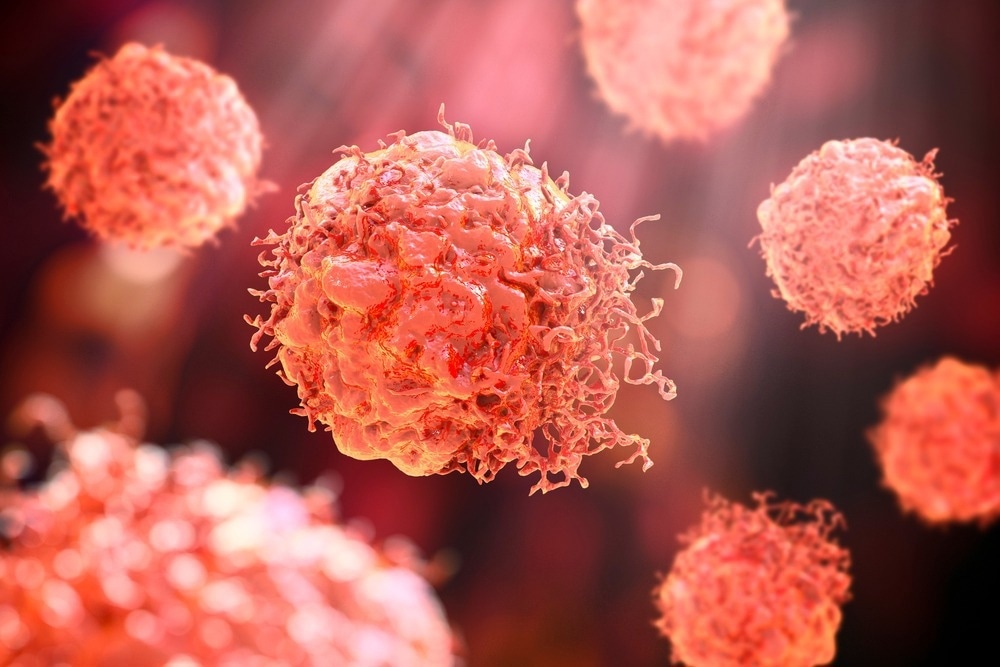What is functional genomics?
Functional genomics is a newly emerging and rapidly evolving drug discovery platform. Its purpose is to study the relationship between genetic information and the functional effects of our genetic code. It involves studying the genome itself, along with its byproducts, such as RNAs and proteins that are encoded by the DNA.
In simple terms, functional genomics seeks to access the ‘black box’ between our genotype and phenotype. With access to this information, scientists would have greater insight into how our DNA influences health and disease. This theoretically would lead to the development of new effective therapeutics for a range of diseases.
Functional genomics often involves gene regulation, epigenetics, transcription, and translation studies. For this reason, it is closely related to epigenomics, proteomics, and transcriptomics.

Image Credit: Yurchanka Siarhei/Shutterstock.com
The importance of CRISPR in functional genomics
While a plethora of technologies have been developed that are useful to functional genomics, undoubtedly, the most useful tool is the game-changing gene-editing technology CRISPR/Cas9. The powerful technology that was discovered in 2012 has already been leveraged in functional genomics to advance our understanding of how genetics plays a role in diseases such as Duchenne muscular dystrophy (DMD) and some types of cancer, as well as infectious diseases such as Japanese encephalitis virus (JEV) infection, emerging coronaviruses (CoVs), pseudorabies virus (PRV), African swine fever (ASF), and others.
CRISPR technology works by identifying the desired location on a strand of DNA via deploying guide RNA (gRNA) and then using the Cas9 nuclease as a pair of ‘molecular scissors’ to cut the DNA at this desired point. This then activated the cell’s DNA-repair apparatus. Once cut, the gene can be edited, removed, or replaced by a new genetic sequence.
CRISPR technology is one of biology's most important discoveries of all time. With this technology, scientists have the possibility to develop therapeutic approaches to diseases that have a genetic bias. This is obvious; however, it also offers the potential to enhance drug discovery. For example, AstraZeneca is one of the first pharmaceutical companies to invest in CRISPR technology. It has also established dedicated research groups in Sweden and the United Kingdom.
Now, we have the possibility of generating libraries of CRISPR reagents. The information stored in these libraries could eventually cover the activation or deletion of every gene in the genome; this information would help scientists identify the specific genes involved in directing biological processes as well as those genes implicated in the mediation of resistance or sensitization to pharmaceutical products. This knowledge will elucidate the relationship between the genome and the functionality of a protein. With this understanding, studies will be able to identify genes responsible for diseases, allowing us to develop therapies that treat or potentially even cure a disease.
The relevance of functional genomics in oncology
While functional genomics is relevant to almost all diseases (all for which genetics are implicated, which, it is generally believed, is true of almost all diseases). Oncology, however, currently stands the most to gain from research and development in this field.
The genetic basis of cancer is well understood; changes in the genome or epigenome promote uncontrolled cell growth which is the hallmark of cancer. These genetic changes can also prevent the immune system from doing its job in destroying tumors. Functional genomics offers early diagnosis, more precise treatment options, and improved patient prognoses.
The UK, in particular, is keeping at the forefront of genomic research and discoveries via their initiative known as the National NHS Genomic Medicine Service. Whole genome sequencing (WGS) has already begun to emerge in clinical practice in the UK, and the government aims to improve on this further by offering elements of the functional genomic pathway specifically for cancer diagnostics.
Recently, we have seen functional genomic methods (e.g., RNA sequencing) used successfully in the early detection of cancer, improving the time it is visible on a CT scan by up to 200 days. This has encouraged the wider use of functional genomic methods in routine diagnostic processes.
Additionally, functional genomic methods pave the way to personalized medicine, particularly for cancer. These methods will be able to identify genetic mutations and epigenetic alterations unique to the patient, enabling personalized medicine to improve the success of their treatment.

Image Credit: Kateryna Kon/Shutterstock.com
Future developments
The full potential of functional genomics in pharmacology is yet to be realized. It could revolutionize the diagnosis and treatment of a wide range of diseases. In the next few years, however, it can be predicted that oncology will see the most impact.
Cancer Research UK, for example, is currently working with the Functional Genomics Centre at AstraZeneca to study cancer biology with the help of CRISPR. The aim is to establish more appropriate biological models to help develop more effective cancer treatments.
Sources:
- Carpenter, S. and Conlan, R. (2021) “Clinical functional genomics,” Cancers, 13(18), p. 4627. Available at: https://doi.org/10.3390/cancers13184627.
- Opening up the genetic ‘black box’ driving disease [online]. Astra Zeneca. Available from: www.astrazeneca.com/r-d/our-technologies/functional-genomics.html (Last accessed December 2022)
- Ruan, J. et al. (2022) “Advances in CRISPR-based functional genomics and nucleic acid detection in Pigs,” Frontiers in Genetics, 13. Available at: https://doi.org/10.3389/fgene.2022.891098.
- What is functional genomics? [online] Genomics Education Programme. Available from: www.genomicseducation.hee.nhs.uk/blog/what-is-functional-genomics/ (Last accessed December 2022)
Further Reading
Last Updated: Jan 25, 2023